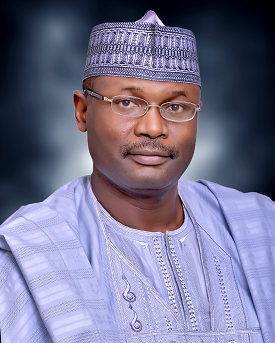he Chairman of the Independent National Electoral Commission (INEC), Professor Mahmood Yakubu, has sounded the alarm over the escalating financial burden of conducting elections in Nigeria, emphasizing that the cost of organizing the country’s elections is becoming increasingly unsustainable. Yakubu’s remarks, made during a recent presentation before the National Assembly, have stirred concerns about the financial health of the electoral body and its ability to effectively carry out its duties in future elections.
Yakubu, who was defending INEC’s budget for the 2024 fiscal year, was forthright in his criticism of the financial constraints the commission is facing. According to the INEC Chairman, the commission had been allocated a significantly reduced budget of N40 billion, far less than the N80 billion it had initially requested. This cut has placed enormous strain on INEC’s operations, particularly in light of the increasing demands of organizing regular elections across the country.
“We cannot continue to conduct elections all year round with such limited resources,” Yakubu told lawmakers, stressing the urgency of addressing the financial shortfalls that have hindered the electoral body’s capacity to function optimally.
A Call for Collaboration and Solutions
Yakubu’s comments come at a time when Nigeria’s electoral processes have come under intense scrutiny, especially following the contentious 2023 general elections. The INEC Chairman appealed to the National Assembly to organize a retreat, where both the legislature and INEC could engage in a collaborative dialogue to find lasting solutions to the challenges facing Nigeria’s electoral system.
“We need a major conversation,” Yakubu said, acknowledging that the current state of affairs could lead to a crisis if left unaddressed. He called for lawmakers to work together with INEC in fostering an environment that allows for more efficient elections and greater transparency in the electoral process.
The Growing Cost of Elections in Nigeria
Conducting elections in Nigeria is no small feat. With a population of over 200 million people spread across 36 states and the Federal Capital Territory, the logistics of organizing elections are daunting. From voter registration to ballot paper printing, transportation of materials, and the setup of polling units, the costs of managing an election in Nigeria run into billions of naira.
Yakubu noted that INEC, which is one of the largest employers in the country, has faced difficulties balancing its operational needs with its financial limitations. The commission’s responsibilities extend beyond simply overseeing elections; it is also tasked with voter education, maintaining the voters’ register, and ensuring that elections are free, fair, and credible. All of these activities require significant funding, yet INEC’s budget has remained insufficient to cover the growing expenses associated with modern electoral practices.
INEC’s Deteriorating Infrastructure
In addition to the financial strain, Yakubu expressed concern over the deteriorating state of INEC’s facilities. The commission currently operates from over 860 buildings across the country, many of which are in urgent need of repair. These facilities house critical materials for election processes, such as voter registration data and ballot papers, but the lack of proper maintenance has left them vulnerable to decay and potential damage.
“Many of our offices are in disrepair,” Yakubu admitted. “This makes it even more difficult to effectively manage the election process.” He called on the National Assembly to prioritize funding for the repair and maintenance of INEC’s infrastructure to prevent any disruptions during future elections.
A Growing Demand for Reform
Yakubu’s calls for reform in the election process come as the country gears up for the 2024 elections and beyond. The INEC Chairman highlighted that the burden of conducting elections is compounded by the frequent nature of elections, particularly in light of the various gubernatorial, senatorial, and federal elections that occur across Nigeria. This, coupled with the need to update the electoral register, conduct voter education, and modernize electoral technology, means that INEC’s budget needs to reflect the scale of the task at hand.
According to Yakubu, Nigeria’s electoral system needs urgent reforms to ensure that the process remains transparent, efficient, and credible. He pointed to the possibility of integrating new technologies and expanding the reach of voter education programs to improve public trust in the electoral process.
Yakubu also called on the National Assembly to approve INEC’s new budget proposal of N126 billion, a substantial increase from the previous allocation. This budget, he explained, would help address the increasing operational costs and ensure that the electoral body is better equipped to handle the demands of organizing elections in one of Africa’s largest democracies.
The Road Ahead for INEC and Nigerian Elections
Despite the challenges facing INEC, Yakubu remained optimistic about the future of Nigeria’s electoral system. He noted that with the right support from the government and collaboration with other stakeholders, INEC could overcome its current difficulties and deliver free, fair, and credible elections.
“We have the capacity to make our elections the best in Africa,” Yakubu declared, reflecting his belief that with adequate funding and infrastructure, Nigeria’s elections could serve as a model for other African nations. He emphasized that the commission’s commitment to ensuring transparency and fairness remains strong, but this can only be achieved with proper resources.

